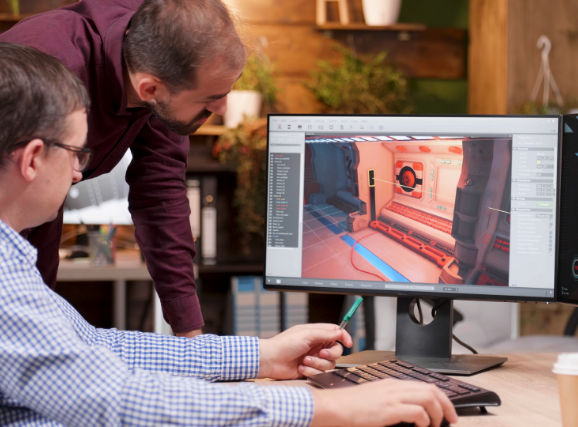Exploring the Impact of AI in Graphic Design: A Comprehensive Guide

The Role of AI in Graphic Design
- Automating repetitive tasks: AI automates time-consuming tasks like image resizing, color palette generation, and template creation, giving designers the freedom to focus on more strategic and imaginative work.
- Personalized design solutions: AI analyzes user data and preferences to create highly personalized designs that resonate with individual clients, offering tailor-made visual solutions.
- Increased efficiency and productivity: By automating routine tasks, AI boosts efficiency, allowing designers to meet tight deadlines and complete projects faster, leading to increased productivity and the ability to take on more projects.
- Complementing human creativity: AI is a valuable tool that complements and enhances human creativity. It provides insights, generates design options, and offers suggestions that enhance the quality of work produced by designers.
What Are the Challenges of Implementing AI in Graphic Design?
Implementing AI in graphic design comes with challenges that must be addressed. Let's examine these obstacles:
- Partial or incomplete data: AI tools heavily rely on the quality and diversity of training data. Only partial or complete data can lead to suboptimal results or expose existing biases.
- Inability to replicate human creativity: AI has made advances in mimicking human cognitive processes but needs help to replicate the creative intuition and expertise of human designers. The human touch remains invaluable in bringing unique perspectives and thinking outside the box.
- Lack of emotional tone and conceptual depth: Graphic design often requires a deep understanding of emotions and complex conceptual ideas. AI-generated designs need more emotional depth and conceptual sophistication that resonates with audiences on a deeper level.
- Difficulty recognizing complex patterns or subtle details: AI excels at processing vast amounts of data but may need help identifying complex patterns or subtle details in an image. Human designers possess an innate ability to add depth and sophistication to their creations through their perceptiveness.
- Ethical and bias issues: AI algorithms are only as unbiased as the data they are trained on. If the training data contains biases or reflects societal prejudices, AI-powered tools can perpetuate or amplify those biases. Ensuring the ethical use of AI in graphic design is crucial to avoid unintended consequences.
Top AI-Powered Tools for Graphic Design in 2023
The integration of Artificial Intelligence (AI) into graphic design workflows has revolutionized the field. AI-powered tools enable designers to enhance creativity, streamline processes, and achieve remarkable results. Here are some popular AI-powered design tools used by graphic designers:
- Uizard Autodesigner: Transforms sketches and wireframes into usable designs, saving time and effort.
- Designs.ai: A comprehensive AI-assisted toolkit that optimizes the design process with tailor-made solutions for tasks like logo creation, video editing, and presentation design.
- Adobe Sensei: Automates repetitive tasks, such as image resizing and color palette generation, while offering predictive insights for efficient and creative work.
- Fronty: Generates custom color palettes and design templates, ensuring visual consistency and exploring various options.
- AutoDraw: Recognizes and completes sketches, helping designers refine concepts and create polished illustrations quickly.
- Khroma: Uses AI algorithms to generate inspiring color palettes based on designers’ preferences, enhancing visual impact.
- Let’s Enhance: Enhances image quality by removing noise and increasing resolution, improving designs effortlessly.
- Alpaca: A Photoshop plugin that simplifies graphic and illustration creation with integrated AI capabilities.
Virtual Bears Use AI to Enhance Graphic Design
Virtual Bears, a website and software development company, uses AI in various ways to enhance its design process. They employ automated image tagging, allowing AI algorithms to analyze images and assign relevant tags automatically. AI is also used in optimizing layouts by analyzing design principles and user preferences, ensuring visually pleasing elements or other design components.
Furthermore, Virtual Bears utilizes real-time feedback from AI-powered design tools that provides valuable insights and recommendations to refine the overall design quality. By integrating AI into their graphic design process, Virtual Bears can enhance creativity, efficiency, and the overall design experience.
REFERENCES:
-
20 Upcoming Web Design Trends & Website Inspiration for 2023: https://www.bluecompass.com/blog/web-design-trends-to-watch-for
-
MOST INNOVATIVE GRAPHIC AND WEB DESIGN TRENDS IN 2023: https://merehead.com/blog/graphic-web-design-trends-2023/
TALK TO US
GET STARTED
Virtual Bears is here to help bring life to an idea that will make your business grow. Request a quote today to get started!
